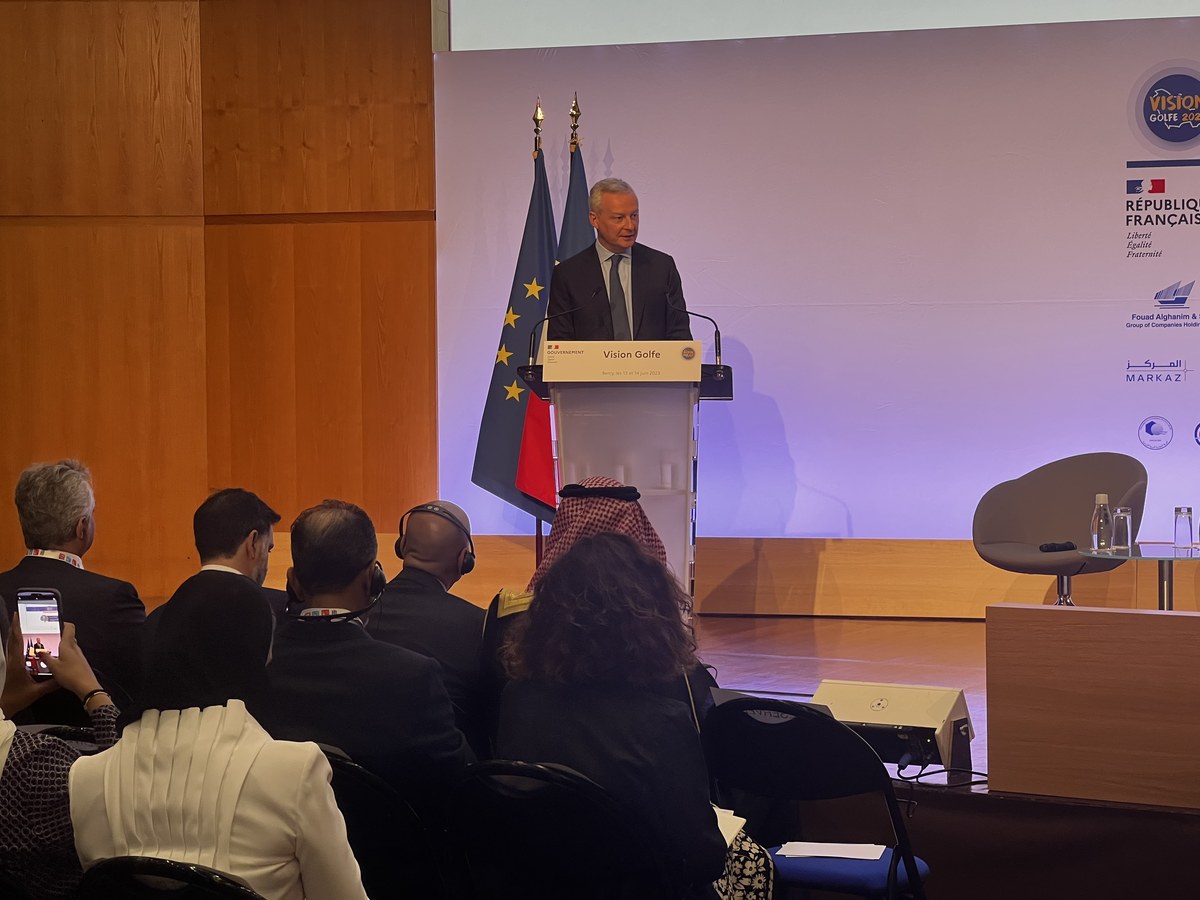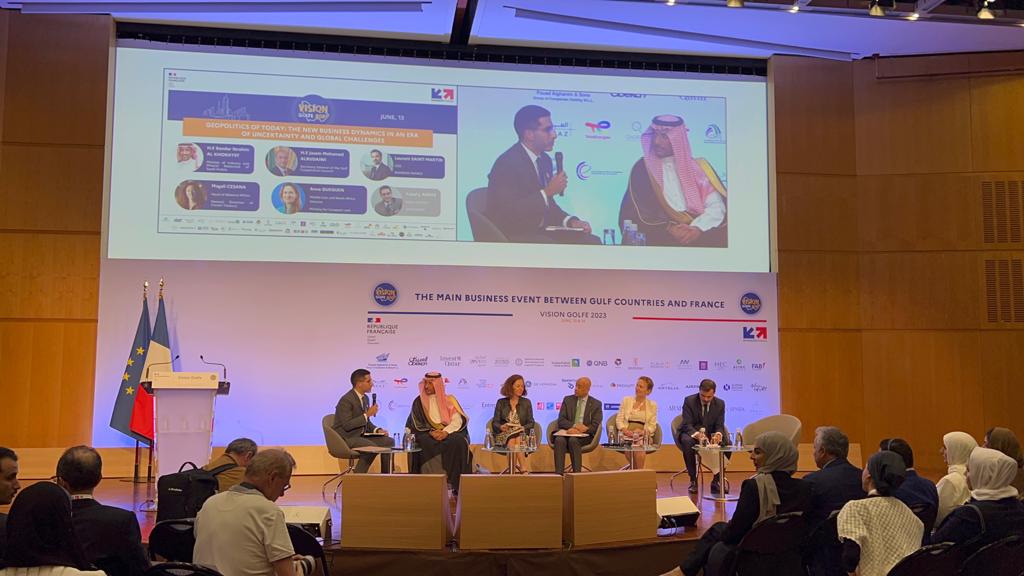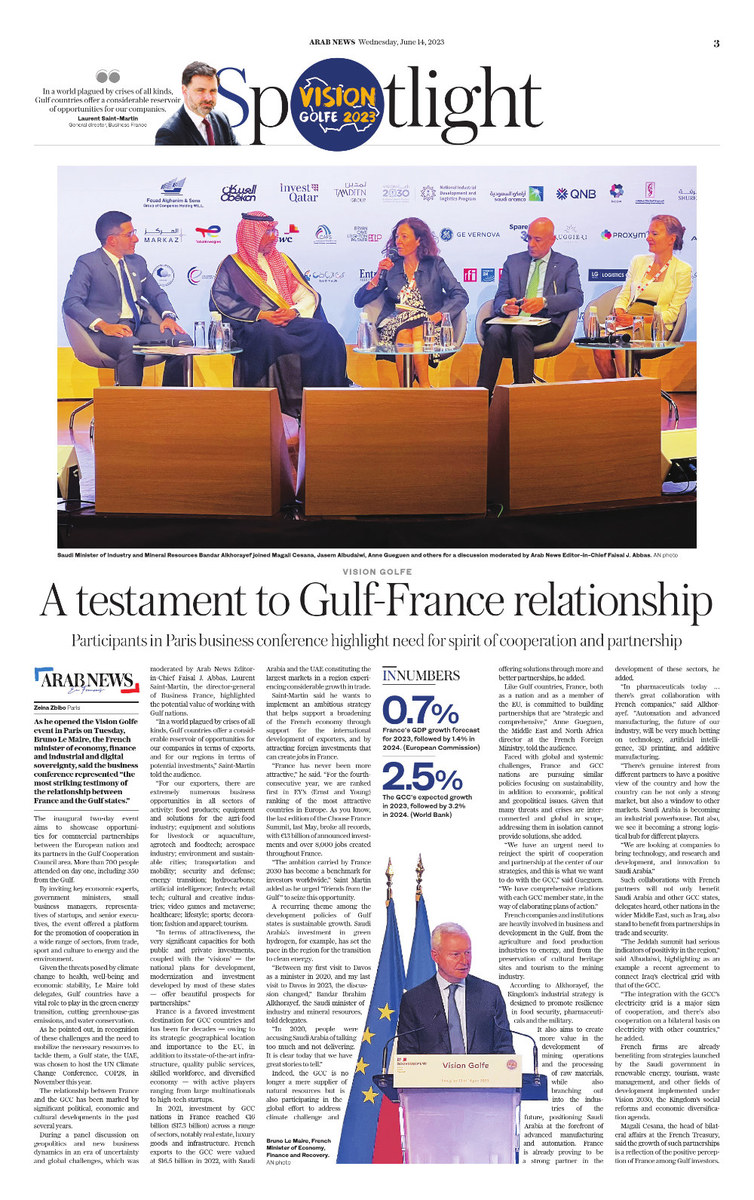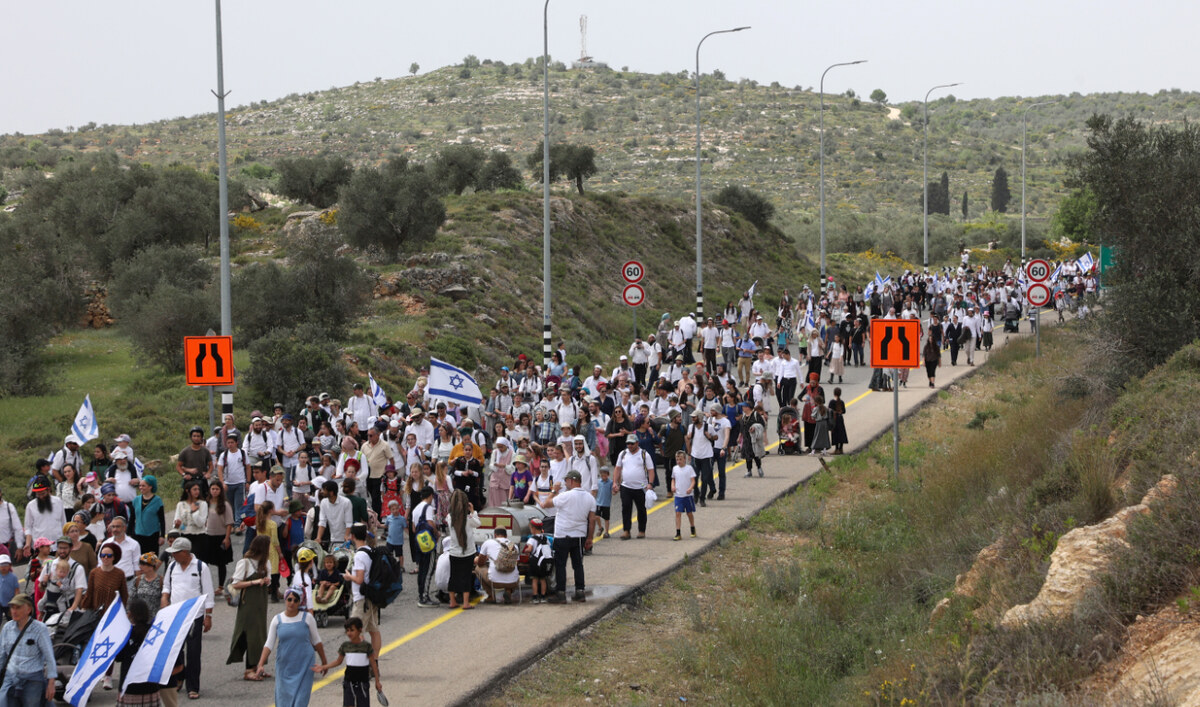PARIS: As he opened the Vision Golfe event in Paris on Tuesday, Bruno Le Maire, the French minister of economy, finance and industrial and digital sovereignty, said the business conference represented “the most striking testimony of the relationship between France and the Gulf states.”
The inaugural two-day event aims to showcase opportunities for commercial partnerships between the European nation and its partners in the Gulf Cooperation Council area. More than 700 people attended on day one, including 350 from the Gulf.
By inviting key economic experts, government ministers, small business managers, representatives of startups, and senior executives, the event offered a platform for the promotion of cooperation in a wide range of sectors, from trade, sport and culture to energy and the environment.
Given the threats posed by climate change to health, well-being and economic stability, Le Maire told delegates, Gulf countries have a vital role to play in the green-energy transition, cutting greenhouse-gas emissions, and water conservation.
As he pointed out, in recognition of these challenges and the need to mobilize the necessary resources to tackle them, a Gulf state, the UAE, was chosen to host the UN Climate Change Conference, COP28, in November this year.

French Minister of Economy, Finance, and Recovery, Bruno Le Maire, Saudi Minister of Industry and Mineral Resources, Bandar bin Ibrahim Alkhorayef and Laurent Saint Martin – Director general of Business France. (AN Photo)
The relationship between France and the GCC has been marked by significant political, economic and cultural developments in the past several years.
During a panel discussion on geopolitics and new business dynamics in an era of uncertainty and global challenges, which was moderated by Arab News Editor-in-Chief Faisal J. Abbas, Laurent Saint-Martin, the director-general of Business France, highlighted the potential value of working with Gulf nations.
“In a world plagued by crises of all kinds, Gulf countries offer a considerable reservoir of opportunities for our companies in terms of exports, and for our regions in terms of potential investments,” Saint-Martin told the audience.
“For our exporters, there are extremely numerous business opportunities in all sectors of activity: food products; equipment and solutions for the agri-food industry; equipment and solutions for livestock or aquaculture, agrotech and foodtech; aerospace industry; environment and sustainable cities; transportation and mobility; security and defense; energy transition; hydrocarbons; artificial intelligence; fintech; retail tech; cultural and creative industries; video games and metaverse; healthcare; lifestyle; sports; decoration; fashion and apparel; tourism.
“In terms of attractiveness, the very significant capacities for both public and private investments, coupled with the ‘visions’ — the national plans for development, modernization and investment developed by most of these states — offer beautiful prospects for partnerships.”
INNUMBERS
• 0.7% France’s GDP growth forecast for 2023, followed by 1.4% in 2024. (European Commission)
• 2.5% The GCC’s expected growth in 2023, followed by 3.2% in 2024. (World Bank)
France is a favored investment destination for GCC countries and has been for decades — owing to its strategic geographical location and importance to the EU, in addition to its state-of-the-art infrastructure, quality public services, skilled workforce, and diversified economy — with active players ranging from large multinationals to high-tech startups.
In 2021, investment by GCC nations in France reached €16 billion ($17.3 billion) across a range of sectors, notably real estate, luxury goods and infrastructure. French exports to the GCC were valued at $16.5 billion in 2022, with Saudi Arabia and the UAE constituting the largest markets in a region experiencing considerable growth in trade.
Saint-Martin said he wants to implement an ambitious strategy that helps support a broadening of the French economy through support for the international development of exporters, and by attracting foreign investments that can create jobs in France.
“France has never been more attractive,” he said. “For the fourth-consecutive year, we are ranked first in EY’s (Ernst and Young) ranking of the most attractive countries in Europe. As you know, the last edition of the Choose France Summit, last May, broke all records, with €13 billion of announced investments and over 8,000 jobs created throughout France.
“The ambition carried by France 2030 has become a benchmark for investors worldwide,” Saint Martin added as he urged “friends from the Gulf” to seize this opportunity.
A recurring theme among the development policies of Gulf states is sustainable growth. Saudi Arabia’s investment in green hydrogen, for example, has set the pace in the region for the transition to clean energy.
“Between my first visit to Davos as a minister in 2020, and my last visit to Davos in 2023, the discussion changed,” Bandar Ibrahim Alkhorayef, the Saudi minister of industry and mineral resources, told delegates.
“In 2020, people were accusing Saudi Arabia of talking too much and not delivering. It is clear today that we have great stories to tell.”

Bruno Le Maire, French Minister of Economy, Finance and Recovery. (AN photo)
Indeed, the GCC is no longer a mere supplier of natural resources but is also participating in the global effort to address climate challenge and offering solutions through more and better partnerships, he added.
Like Gulf countries, France, both as a nation and as a member of the EU, is committed to building partnerships that are “strategic and comprehensive,” Anne Gueguen, the Middle East and North Africa director at the French Foreign Ministry, told the audience.
Faced with global and systemic challenges, France and GCC nations are pursuing similar policies focusing on sustainability, in addition to economic, political and geopolitical issues. Given that many threats and crises are interconnected and global in scope, addressing them in isolation cannot provide solutions, she added.
“We have an urgent need to reinject the spirit of cooperation and partnership at the center of our strategies, and this is what we want to do with the GCC,” said Gueguen. “We have comprehensive relations with each GCC member state, in the way of elaborating plans of action.”
French companies and institutions are heavily involved in business and development in the Gulf, from the agriculture and food-production industries to energy, and from the preservation of cultural heritage sites and tourism to the mining industry.
According to Alkhorayef, the Kingdom’s industrial strategy is designed to promote resilience in food security, pharmaceuticals and the military.
It also aims to create more value in the development of mining operations and the processing of raw materials, while also branching out into the industries of the future, positioning Saudi Arabia at the forefront of advanced manufacturing and automation. France is already proving to be a strong partner in the development of these sectors, he added.

Panel Geopolitics of resources in 2023: What common responses to global challenges? as part of Vision Golfe and in the presence of French Minister of Economy, Finance, and Recovery, Bruno Le Maire, Saudi Minister of Industry and Mineral Resources, Bandar bin Ibrahim Alkhorayef, and Faisal Abbas, Arab News Editor-in-Chief. (AN photo)
“In pharmaceuticals today … there’s great collaboration with French companies,” said Alkhorayef. “Automation and advanced manufacturing, the future of our industry, will be very much betting on technology, artificial intelligence, 3D printing, and additive manufacturing.
“There’s genuine interest from different partners to have a positive view of the country and how the country can be not only a strong market, but also a window to other markets. Saudi Arabia is becoming an industrial powerhouse. But also, we see it becoming a strong logistical hub for different players.
“We are looking at companies to bring technology, and research and development, and innovation to Saudi Arabia.”
Such collaborations with French partners will not only benefit Saudi Arabia and other GCC states, delegates heard, other nations in the wider Middle East, such as Iraq, also stand to benefit from partnerships in trade and security.
“The Jeddah summit had serious indicators of positivity in the region,” said Albudaiwi, highlighting as an example a recent agreement to connect Iraq’s electrical grid with that of the GCC.
“The integration with the GCC’s electricity grid is a major sign of cooperation, and there’s also cooperation on a bilateral basis on electricity with other countries,” he added.
French firms are already benefiting from strategies launched by the Saudi government in renewable energy, tourism, waste management, and other fields of development implemented under Vision 2030, the Kingdom’s social reforms and economic diversification agenda.
Magali Cesana, the head of bilateral affairs at the French Treasury, said the growth of such partnerships is a reflection of the positive perception of France among Gulf investors.


































